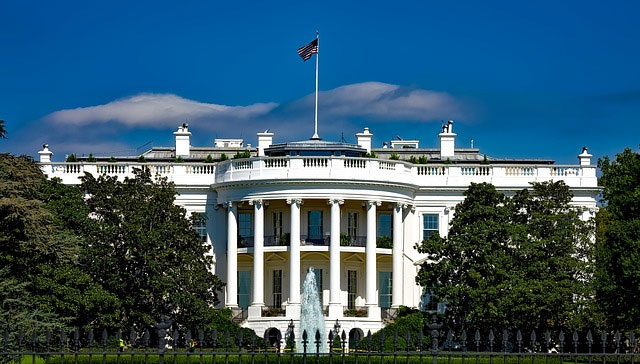
Hello, my “Walking with Jesus” friends and welcome to the Weekend Edition,
I wonder what biographies of your life and mine would be like, my friends? Probably for all of us there would be some pages, maybe some chapters which would not be very flattering and perhaps we all have some life events we hope would be omitted from our life story.
The last few lines summarizing King Manasseh’s long life in Jerusalem are these: “The other events of Manasseh’s reign, including his prayer to his God and the words the seers spoke to him in the name of the LORD, the God of Israel, are written in the annals of the kings of Israel. His prayer and how God was moved by his entreaty, as well as all his sins and unfaithfulness, and the sites where he built high places and set up Asherah poles and idols before he humbled himself – all these are written in the records of the seers.” (2 Chronicles 33:18,19)
That word ‘seer‘ is a strange word, isn’t it? In 1 Samuel 9:9 these men are explained this way: “if someone went to inquire of God, they would say, ‘Come let us go the seer’, because the prophet used to be called a seer.” So, it appears God sent word to Manasseh often through ‘seers‘ and also, these seers kept written records of the king’s life.

May I show you something I find fascinating? Here is how 2 Kings 21 concludes the Biblical record of king Manasseh: “Manasseh also shed so much innocent blood that he filled Jerusalem from end to end – besides the sin that he caused Judah to commit, so that they did evil in the eyes of the LORD. As for the other events of Manasseh’s reign, and all he did, including the sins he committed, are they not written in the annals of the kings of Judah? Manasseh rested with his ancestors and was buried in his palace garden, the garden of Uzza.” (2 Kings 21:16-18)
Interestingly, the 2 Kings account gives us no record of Manasseh being taken prisoner to Babylon; and calling out to God in repentance; and God restoring Manasseh back to Jerusalem. Now does that mean we have a contradiction in the Bible? No, rather it means the Holy Spirit of God who is the author of the entire Bible, led the author of Chronicles to include an aspect of Manasseh’s life which the Spirit did not lead the author of 2 Kings to include.
You’ll also notice both the Kings and Chronicles accounts tell us Manasseh was buried in his palace, but the Kings account specifies it was in the garden of Uzza in the palace. Please don’t let differing Biblical versions of the same person or incident confuse you, but rather that God is giving us further detail when combining all the records together.
Finally, the 55-year reign of king Manasseh ended with his death. No king in Israel reigned longer. 55 years!! During his lifetime, God had sent many Jewish prophets and ‘seers‘ to challenge Manasseh in his wickedness including the prophet Micah, Isaiah and Nahum. Manasseh had been miraculously born to that remarkable king Hezekiah who had experienced several great miracles from God, yet it appears Manasseh rejected any Godly influence either from his father or all three of the prophets of God.
At his death his son Amon ascended to the throne in Jerusalem, but his reign was short, only two years. Why you might ask? The record gives us this: “Amon was 22 years old when he became king, and he reigned in Jerusalem 2 years. He did evil in the eyes of the LORD as his father Manasseh had done. Amon worshiped and offered sacrifices to all the idols his father Manasseh had made. But unlike his father, Amon did not humble himself before the LORD. Amon’s officials conspired against him and assassinated the king in his palace! He was buried in his tomb in the garden of Uzza as his father had been.” (2 Chronicles 33:21-25 & 2 Kings 21:19-26) Now that fascinates me! The people tolerated the wickedness of Manasseh for 55 years, but only gave Amon his son two years! Why?
I wonder what the people of Jerusalem learned through God’s dramatic and life changing work in king Manasseh. I wonder how different his second season as king was, after returning from his captivity in Babylon, as compared to his first long reign of decades of wickedness? I wonder how the people of Jerusalem were impacted as they watched first God’s judgment on Manasseh, by having him shackled and hauled off to Babylon, (2 Chron. 33:9-11) and then second by God’s mercy on Manasseh in response to his repentance? (2 Chron. 33:12,13)
How significant that God reinstated Manasseh as king back in Jerusalem, and gave him some additional years to show the people that his heart was truly changed as he demolished idols he had constructed and sought to restore God honoring worship at the Temple?
Now, if Amon became king at 22 when his father Manasseh died, that tells me he had watched all these remarkable events happen right before his eyes. And while Amon had never met his grandfather Hezekiah, no doubt he had heard of God’s deliverance of Jerusalem from the attacking Assyrian army and God’s miracle healing of Hezekiah from his terminal illness! (2 Chronicles 32)
But clearly Amon’s heart was prideful and hard, and he rejected both God and the lessons he could have learned from his father Manasseh’s transformation and his grandfather Hezekiah’s legacy. Instead, Amon’s short reign was known for wickedness. Oh my, how different things might have been if Amon would have been humbled and sought God’s guidance and learned important lessons from his father and grandfather.

This causes me to pause and ponder. About 60 days from now Mr. Trump will be inaugurated into the office of the US Presidency for another term. This has only happened one other time in US history. The Oval Office is perhaps the most powerful office in the world but oh my, the world is so different today from when Mr. Trump left the US Presidency, four years ago! Several changes are also happening in the US Congress and Senate leadership. And the whole world is watching!
What have the incoming new leaders learned as they’ve watched world events in the past several years? What is their plan for leading America and influencing the world in the months ahead? What will be the first major actions taken once they are in their leadership positions? How will America and our world be different one year, two years, 10 years from now? And as all these transitions take place, what does God want your role and mine to be, as God’s people, in bringing calm to the chaos, clear thinking in the confusion, unity in the division, peace in the storm?
History is being written… what is God’s role for you and me in this significant moment in history? And what do you think this all looks like through the eyes of Africans or Asians or South Americans as they hope for a new future? Here’s an old worship song sung for us by Africans, to help us consider how important these days are for us and for them!
Bible images provided with attribution to www.LumoProject.com.
Have a comment or question about today’s chapter? I’m ready to hear from you, contact me here.

Pastor Doug Anderson
“Let us run with perseverance the race marked out for us, with our eyes fixed on Jesus…” (Heb. 12:1,2)
Archived back issues of “Walking with Jesus” and other resources are available by clicking here to open our ‘home page’ (or go to HOME at upper right of this page).
Share with friends. Subscribe below for daily “Walking with Jesus”.


